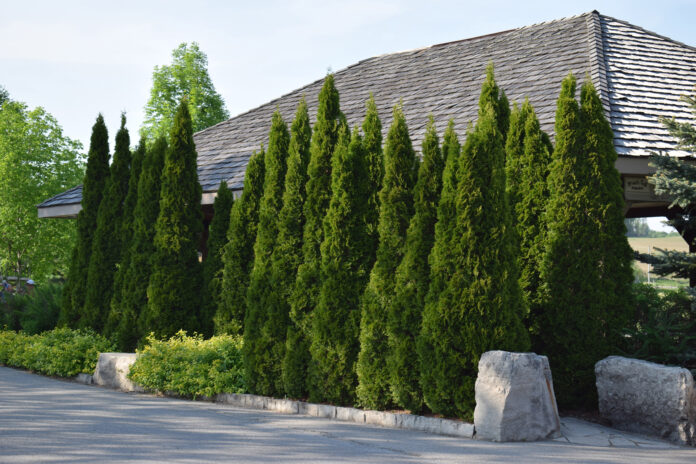By Mark and Ben Cullen – Gardening
We are all familiar with the message that we should buy locally produced food. It is fresh, lacks the transportation impacts associated with long distance trucking and a locally grown apple this time of year just tastes better than any of the competitors.
But what about plants? The nursery grown plants made available to us from early spring through late fall can originate from far away places, or they can be grown just down the road. The difference is significant.
Here are our reasons why buying local, Canadian grown plants makes sense:
- Winter hardiness. Most plants that we grow in our gardens we expect to survive our long, cold Canadian winters. A two-metre-tall Canadian grown tree that you buy at a garden retailer now was started 6 to 8 years ago from a seed or cutting. It has endured several Canadian winters before you plunk it in your yard. That preconditioning is no guarantee that it will survive in your garden, but it sure helps.
Frequently we are asked, “what is the best cedar for hedging” and our answer often surprises people. The nursery grown cedars grown locally are a much better bet than the cheap eye candy Emerald Cedars that are sold in black plastic pots and grown in Oregon. They grow fast on the west coast. Here, they die faster. Their roots are too small to push through a hot, dry, Canadian summer, and if they live, they enter the winter hungry and tired.
- Environmental costs. When you buy a rose bush from California the cost of transportation is built into the retail price. However, the environmental cost of shipping it over 6,000 kilometres is one that we all pay for in increased carbon. The detrimental effects of burning carbon fuel are well documented by science and now, undisputed.
- Jobs at home. The Horticulture sector of the economy supports 220,000 Canadian jobs, according to the most recent Stats Can statistics as of 2019. Since the pandemic, we are certain that the number of jobs has increased as has the farm gate value of Canadian grown ornamental plants. According to Victor Santacruz, Executive Director of the Canadian Nursery Trades Association, the ornamental horticulture sector of the economy provides over $4 billion in employment income and $15 billion in economic impact on our economy. This is made up of over $7 billion in sales and approximately $8 billion in value added impact to the economy.
In our opinion, there has never been a better time to buy Canadian plants.
- Community building. Especially of late, Master Gardener groups and horticulture societies have reported stellar success selling plant material grown by their members at plant sales. These groups do a lot of service in their communities, educating and promoting horticulture, and a purchase at their sales is an investment in your local horticulture community.
- Native biodiversity. A niche breed of nursery grower grows sells native seed-source perennials, an important point of difference from many commercial growers who produce genetically identical plants from cuttings. Seed-sourced native plants help protect native biodiversity by cultivating local genotypes within a species that are specifically adapted to their locales.
We reflect on the world that Ben’s baby Peter will inherit. What educational and job opportunities will exist for him in this sector of the economy? And what can we do to sustain and build on a profession and a planet that serves us back? Supporting local is an easy choice.
Mark Cullen is an expert gardener, author, broadcaster, tree advocate and Member of the Order of Canada. His son Ben is a fourth-generation urban gardener and graduate of University of Guelph and Dalhousie University in Halifax. Follow them at markcullen.com, @markcullengardening, and on Facebook.


